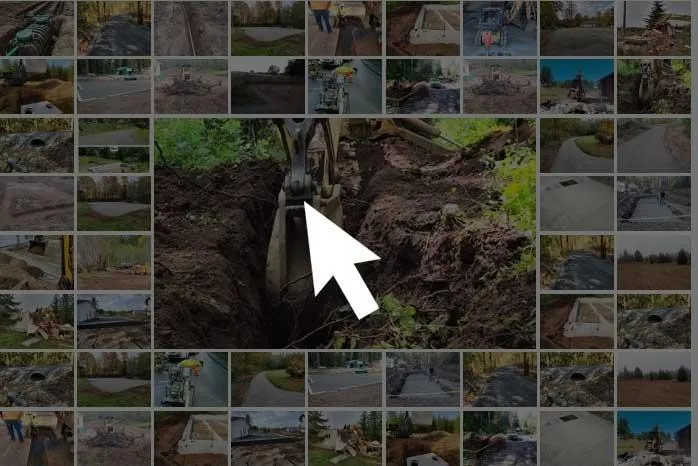The Royal Flush - Design, Install & Repair
Licensed, Bonded & Insured | Family Owned & Operated Since 1965
Licensed #WI DNR, MI EGLE
WLWCA Members | MSHA Certified
Septic System Blog

From Clogs to Cracks: Solving Septic Problems in Marinette County | Dyer Inc.
From Clogs to Cracks: Solving the Most Common Septic Problems in Marinette County
Understanding Your Septic System: A Quick Overview
Let’s face it: most homeowners in Marinette County don’t spend their days thinking about their septic system—until something goes wrong. That humble system buried in your yard is vital for handling wastewater and keeping your home functional. Here’s the short version: your septic system collects wastewater, separates solids from liquids, processes it through a tank, and sends treated water back into the ground. It’s an elegant solution when it works, but when it doesn’t? Things can get messy—fast.
The Usual Suspects: Common Septic System Problems
When something’s off with your septic system, you’ll notice. The most common culprits include:
Clogged Pipes or Drains: Waste and grease buildup can block flow.
Cracked or Damaged Tanks: Tanks can develop leaks from wear, roots, or heavy equipment passing over them.
Drain Field Failures: If your yard is soggy or smells like sewage, your drain field might be overloaded or failing.
Pump Malfunctions: If your system relies on a pump, it could fail, leading to backups.
Overflows and Backups: Often caused by ignoring early warning signs or overloading the system.
These issues can vary in severity, but they all have one thing in common—they’re a headache you’d rather avoid.
Signs Your Septic System Is in Trouble
No one wakes up hoping to discover septic problems, but the sooner you spot the warning signs, the better. Watch for:
Slow Drains: If water takes forever to leave your sink or tub, it could mean a clog is forming in your system.
Unpleasant Odors: A tell-tale sewage smell is a surefire sign something’s wrong.
Pooling Water: Wet patches in your yard, especially near the drain field, could mean your system is leaking or failing.
Gurgling Noises: Air bubbles in your pipes can signal a blockage or backup.
Frequent Backups: If toilets or sinks overflow regularly, your system is in trouble.
Recognizing these signs early can save you from bigger, costlier problems down the road.
What Causes These Problems? A Deep Dive
Most septic issues don’t happen overnight—they’re the result of neglect, environment, or just plain wear-and-tear. Here’s what’s often to blame:
Neglecting Maintenance: Skipping regular pump-outs and inspections allows solids to build up, causing clogs and overflows.
Improper Usage: Flushing wipes, grease, or non-biodegradable items strains your system.
Environmental Factors: Heavy rains can flood your drain field, while cold winters (hello, Marinette County!) can freeze pipes.
Aging Systems: Like anything else, septic systems have a lifespan. Older systems are more prone to cracks and failures.
Understanding the root cause can help you prevent problems or catch them before they escalate.
When to Call for Help: DIY vs. Professional Septic Repairs
As tempting as it may be to roll up your sleeves and tackle the problem, not every septic issue is DIY-friendly.
What You Can Do: Minor clogs can sometimes be resolved with a plunger or enzyme treatments designed for septic systems. Keeping an eye on your water usage and avoiding harmful items in your drains helps too.
What Requires a Pro: If you notice leaks, persistent odors, or backups, it’s time to call the experts. At Dyer Inc., we’ve seen it all, from collapsed tanks to flooded drain fields, and we know how to fix it right the first time.
How Much Should You Expect to Pay? Septic Repair Costs Explained
One of the biggest worries we hear from homeowners is, “How much will this cost me?” While prices vary based on the problem, here’s a rough guide for Marinette County and surrounding areas:
Minor Clogs or Repairs: $100–$500
Drain Field Repairs: $1,000–$5,000
Tank Replacement: $3,000–$7,000
Full System Replacement: $10,000–$25,000+
These figures aren’t set in stone, but understanding what to expect can help you budget and avoid surprises.
Preventative Maintenance Tips to Keep Your Septic System Happy
The best way to deal with septic problems? Prevent them from happening in the first place. Here’s how:
Pump Regularly: Have your system pumped every 3–5 years (or as recommended).
Watch What You Flush: Only toilet paper and human waste should go down the toilet—no exceptions.
Use Water Wisely: Spread out laundry loads and fix leaky faucets to avoid overloading the system.
Schedule Inspections: A yearly check-up can catch small issues before they become big ones.
Protect Your Drain Field: Avoid parking vehicles or planting trees near it to prevent damage.
These small steps can save you thousands in repairs over the life of your septic system.
Why Choose Local? The Dyer Inc. Difference
We know you have choices when it comes to septic repair, but there’s something special about working with a local team that knows the area. At Dyer Inc., based right here in Marinette County, we’re not just fixing systems; we’re helping our neighbors. We take the time to understand your needs and offer customized solutions that fit your home, budget, and timeline.
Frequently Asked Questions About Septic Repairs
How do I know if my system needs repair or replacement?
If the damage is localized, a repair might suffice. Extensive damage or an aging system may require a full replacement.Can heavy rain damage my septic system?
Yes, heavy rains can saturate the drain field and cause backups.How long does a typical septic system last?
With proper care, a system can last 20–30 years, sometimes longer.What happens if I delay repairs?
Small problems can quickly escalate into major (and more expensive) issues.
Septic problems can feel overwhelming, but you don’t have to face them alone. At Dyer Inc., we’re here to guide you every step of the way, from identifying the issue to delivering solutions that last. Let’s tackle those clogs and cracks together—because your peace of mind is worth it.

AVOID COSTLY MISTAKES:
Do NOT hire an excavating contractor without first reading our free guide:
The ULTIMATE Excavation & Septic "Success Guide."

See Photos!
We Offer Septic Services Near You!
If you don't see your specific area contact us and we may still be able to help or give a referral.
All rights reserved | Privacy policy





